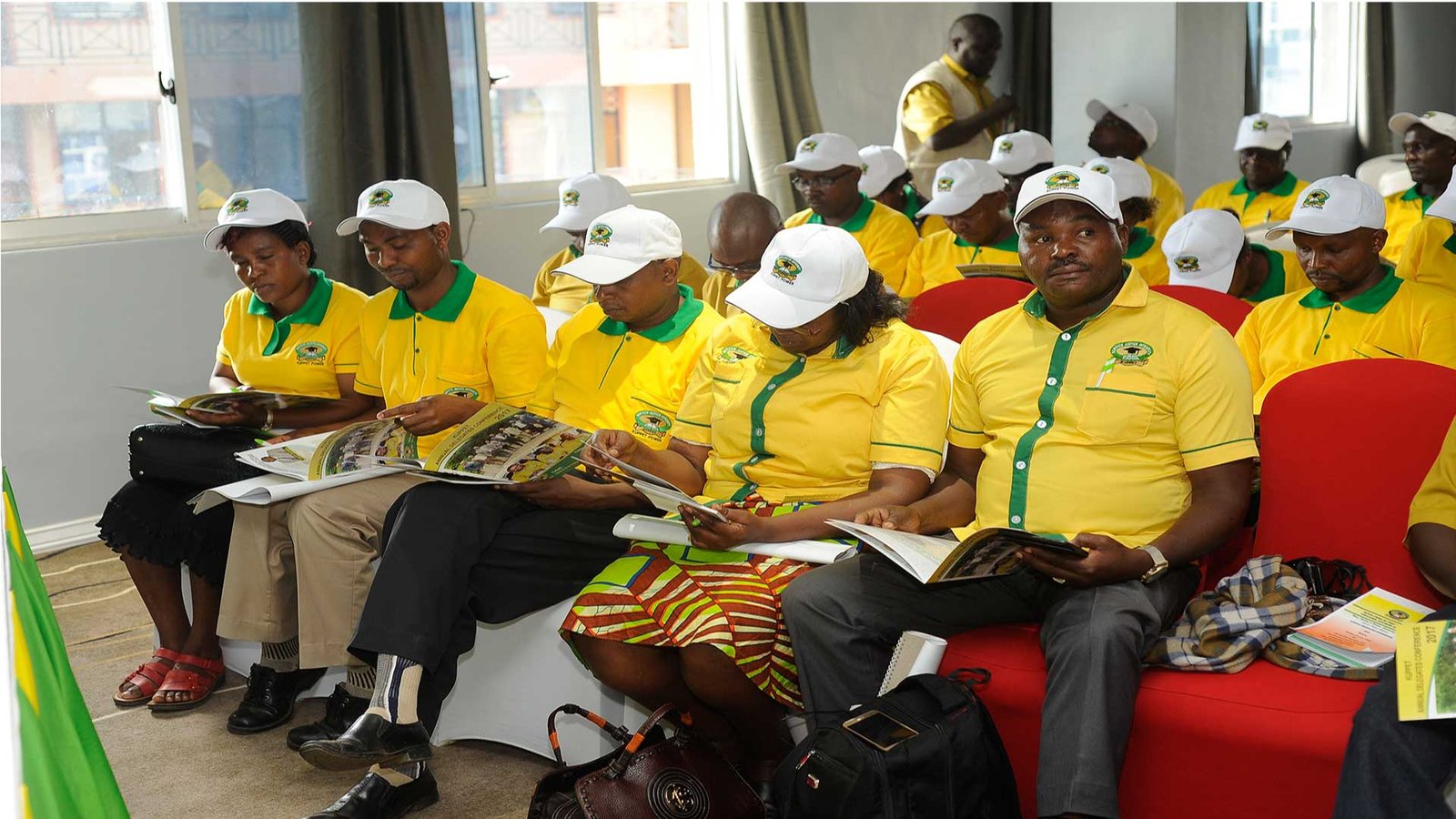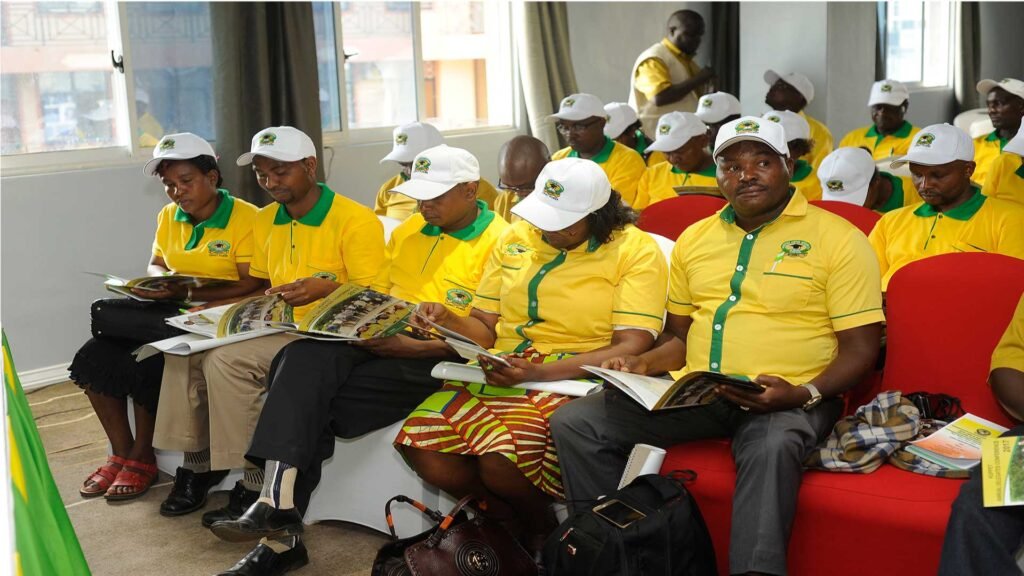JSS Teachers Strike: A Symptom of Larger Issues in Kenya’s Education System

A photo of the teachers union leaders. PHOTO/KUPPET

Introduction
The recent strikes by Junior Secondary School (JSS) teachers in Kenya have drawn significant public attention, highlighting a critical segment of the education system that is facing various challenges. These protests are not merely random acts of discontent but rather reflect growing frustrations among educators regarding their working conditions, remuneration, and the broader educational framework. As teachers engage in strikes, they signal the need for urgent reforms in the Kenyan education sector, particularly at the JSS level.
One of the primary reasons behind the strikes is the ongoing debate concerning the inadequate pay and benefits provided to JSS teachers. Many educators argue that their compensation does not align with the increased responsibilities they shoulder in guiding and nurturing young learners. Additionally, the disparities in remuneration compared to their colleagues in primary and secondary schools exacerbate the situation, creating a sense of inequity within the teaching profession.
Beyond wages, JSS teachers have raised concerns regarding the lack of resources necessary for effective teaching. Many schools are faced with infrastructural challenges, including inadequate classrooms, insufficient learning materials, and limited access to technology. These deficiencies hinder the learning experience and diminish educational outcomes for students. Furthermore, policies regarding teacher training and professional development have also come under scrutiny, with calls for enhanced support to equip teachers with the skills needed to address the dynamic educational landscape.
Overall, the strikes serve as a warning sign of deeper, systemic issues inherent in Kenya’s education system. They reveal a crucial need for collaborative dialogue among stakeholders, including the government, educational institutions, and teachers’ unions, to develop sustainable solutions. By acknowledging and addressing these multifaceted factors, the Kenyan education sector can move toward a more effective and equitable framework that benefits both educators and students alike.
Reasons for the Strikes
The root causes of the JSS teachers’ strikes in Kenya can be traced back to a combination of systemic issues within the education framework. A significant grievance among the teachers is the issue of delayed promotions. Many educators have expressed frustration over the guidelines established by the Teachers Service Commission (TSC), which seem to prolong the advancement process, consequently impacting their professional development and financial stability. This delay has generated discontent, as teachers feel undervalued and unrecognized for their dedication and hard work.
Another critical concern contributing to the strikes is salary discrepancies. Teachers have pointed to inconsistencies in compensation that raise questions about equity across different educational levels. For instance, while some teachers in higher grades receive substantial pay increments, their JSS counterparts find themselves in stagnant salary bands devoid of meaningful adjustments. This disparity amplifies feelings of resentment, exacerbating tensions between JSS teachers and education authorities.
Furthermore, poor working conditions play a pivotal role in the unrest. Many JSS teachers report inadequacies in classroom resources, insufficient infrastructure, and overwhelming workloads. These conditions not only affect teachers’ ability to deliver quality education but also impact their overall job satisfaction. As a result, the educational environment is at risk, compromising the learning experience for students.
The impact of government policies cannot be overlooked, as they often fail to address these systemic challenges. While advocacy for improvement has been made, there seems to be a disconnect between policymakers and the practical realities faced by JSS teachers. This lack of effective communication and policy implementation diminishes trust and fosters a sense of urgency, which ultimately culminates in strike actions.
Impact of Teacher Shortages and Budget Constraints
The critical shortage of teachers in the Junior Secondary School (JSS) sector in Kenya has emerged as a substantial barrier to delivering quality education. This scarcity is not only a result of inadequate recruitment efforts but also reflects a deeper, systemic issue within the education system. The government’s delayed recruitment processes have directly contributed to a learning environment where teacher-student ratios are increasingly unfavorable, leading to diminished teacher morale and reduced student engagement. Many qualified educators remain without placements due to bureaucratic hurdles, resulting in excessive workloads for existing teachers, which in turn impacts their effectiveness in the classroom.
Furthermore, budget constraints and chronic underfunding of educational institutions exacerbate the situation. The Teachers Service Commission (TSC), responsible for recruiting and promoting teachers, often finds its hands tied due to fiscal limitations. This creates a cycle of under-representation of qualified teaching staff across JSS, leading to an inequitable distribution of educational resources and opportunities. As funds dwindle, the TSC faces challenges not only in hiring new educators but also in retaining existing staff, who may seek opportunities elsewhere for better compensation and working conditions.
The implications of these financial issues extend beyond the teaching workforce. Students in the JSS system face the consequences of overburdened educators, which can lead to a decline in educational standards. With fewer teachers available, personalized attention becomes a rarity, adversely affecting student learning outcomes. Additionally, the morale among educators suffers as they navigate a system rife with uncertainty and inadequate support. Collectively, these factors not only deteriorate the educational experience but also threaten the long-term sustainability of Kenya’s education ambitions, signaling urgent need for policy reforms and increased budget allocations to address these foundational challenges.
Impact on Students and Possible Solutions
The JSS teachers’ strike has profound implications for students, significantly disrupting their learning experience and hindering academic progress. Extended periods of educational interruption can result in considerable gaps in knowledge, affecting not only immediate understanding but also long-term academic development. Students who miss critical learning opportunities during strikes often struggle to catch up with their peers, leading to disparities in educational outcomes. This situation is particularly troubling given the implementation of the competency-based curriculum (CBC), which aims to promote skills and competencies for holistic learning.
The challenges surrounding the CBC are exacerbated by underfunding and understaffing within Kenya’s educational system. Strikes lead to missed classes, impeding the effective rollout of this innovative curriculum that is designed to be more inclusive and practical. With fewer teachers available to deliver lessons, students are left without adequate support, further complicating their learning journey. This scenario not only affects current students but may also diminish the overall quality of education in the country, leading to longer-term economic and social repercussions.
Addressing these challenges requires collaborative efforts between the government and the Teachers Service Commission (TSC) to foster sustainable solutions. Potential strategies could include better funding allocations for education, ensuring that schools are adequately staffed and resourced. Additionally, it may be beneficial to engage in dialogue with teachers to address their grievances proactively. Setting up a clear framework for resolving disputes, along with offering incentives for teaching in underserved areas, may serve to mitigate the impact of future strikes.
In conclusion, while the JSS teachers’ strike reveals significant issues within Kenya’s education system, it also presents an opportunity for meaningful reform. By focusing on both immediate support for students affected by the strikes and systemic changes to ensure a more robust educational framework, stakeholders can work towards creating an environment conducive to learning and development.






